Russia annexes four areas of Ukraine
- Published
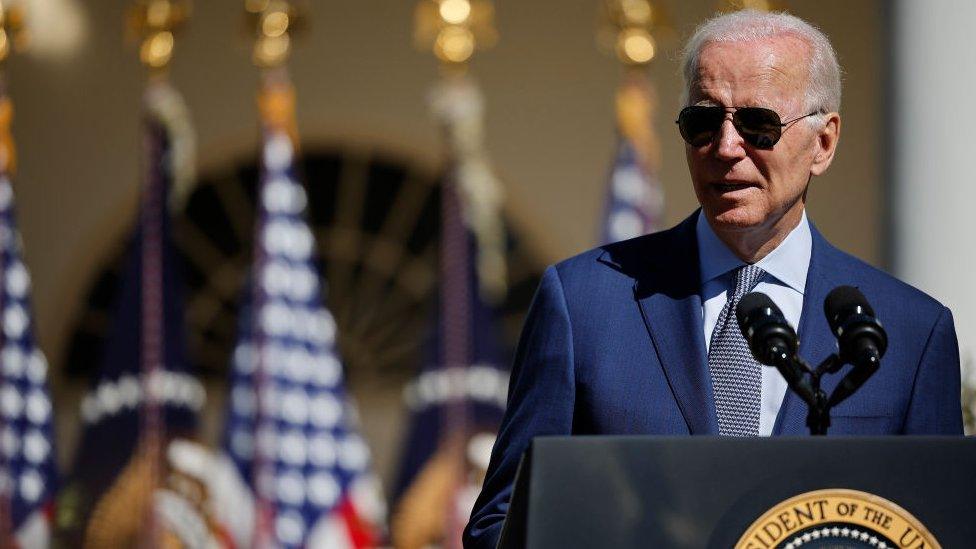
President Joe Biden refused to recognise the areas that Russia has annexed
Russia has said that it now owns four areas of Ukraine, after a vote which Ukraine's supporters say was 'a sham' - which means they don't believe in it.
The Russian president made a major speech at the Kremlin in Moscow on Friday, where the Russian Government is based.
It was part of a grand signing ceremony in Moscow to officially annex four more areas of Ukraine.
In the speech he said the people in those area had "made their choice" and that the annexation of Ukrainian territory is now non-negotiable- meaning it is not a subject up for discussion.
But the West says the claim that people in those areas want to join Russia is not necessarily the truth and the move is illegal under international law.
US President Joe Biden has now said the US will "never, never, never" recognise these areas as part of Russia.
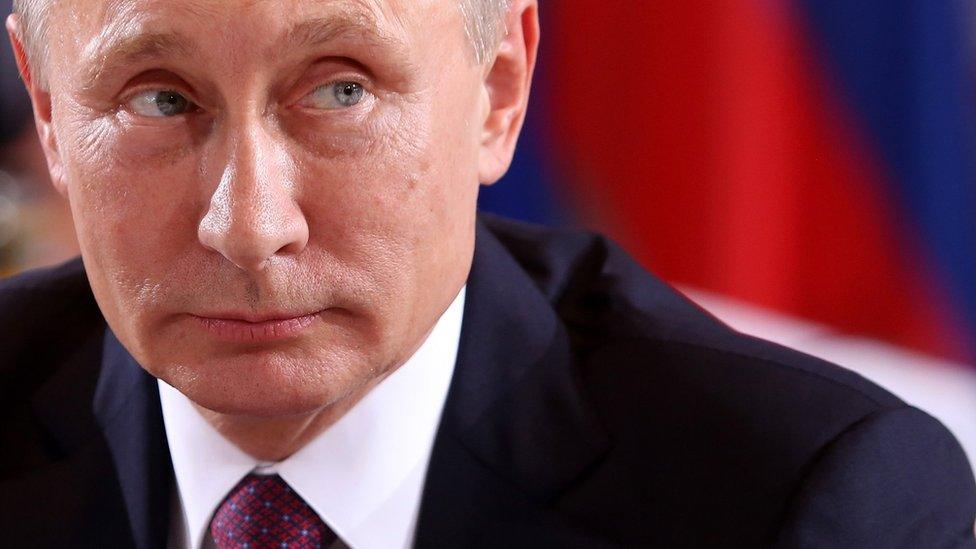
Russian President Vladimir Putin has been under pressure because Russia is not doing as well as he had hoped following its invasion of Ukraine.
What is annexing?
When part of a country is annexed by another, it means it was forced into being part of the annexing country.
This usually comes with a military occupation - where a country's army comes in to tell people that the new country has taken over.
In Ukraine, Russia has declared that former Ukrainian areas are now part of Russia - this is annexing.
In Russia, they set up a referendum, so people in the areas could vote on whether they agree with Russia annexing the previously Ukrainian land.
If you're unsure about what some of the other terms mean, you can read about them here.
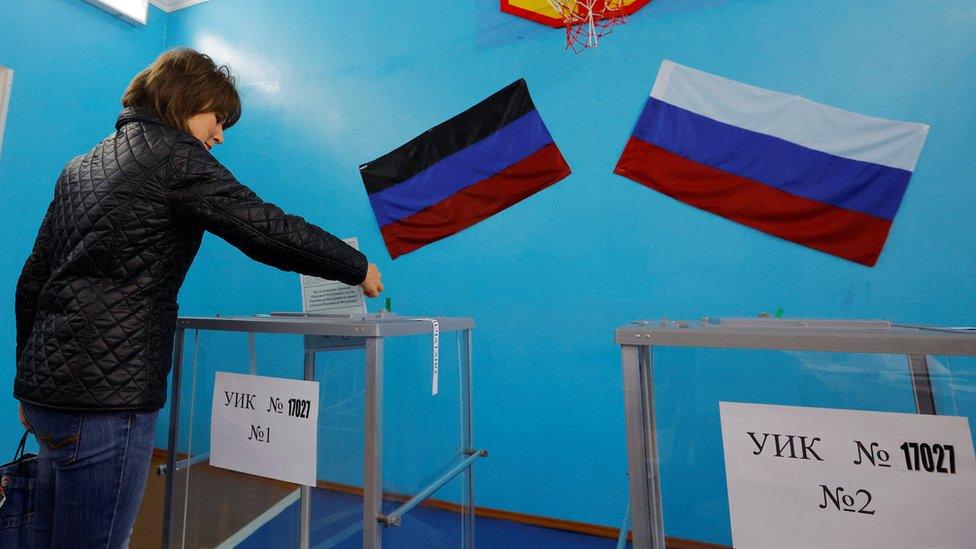
A woman casts her ballot at a polling station during a referendum in Donetsk
The referendum
A referendum is supposed to be a vote which all adults can take part in, normally giving a "Yes" or "No" answer to a question, with the winner earning more than half of the votes.
Over the last week nearly four million people living in eastern Donetsk and Luhansk and southern parts of Kherson and Zaporizhzhia were asked to vote in a referendum, on whether they want to join the Russian Federation, or to stay part of Ukraine.
The areas are currently under Russian control, and it has been reported that Russian soldiers armed with guns accompanied the people collecting votes as they went to people's houses.
This means many people may have felt they could not vote freely for what they actually wanted to happen.
The referendums were described as a 'sham' and 'illegal' by Ukraine's government and its allies.
Annexation is when a country decides it now controls another area, without the agreement of the people involved or anyone else they might need to get permission from.
It is forbidden by international law.
What Russia says
Russia's leader Vladimir Putin held a signing ceremony on Friday and Russian authorities say that these areas of Ukraine now legally belong to their country.
Russia says that the referendum showed almost total support for these areas becoming part of Russia.
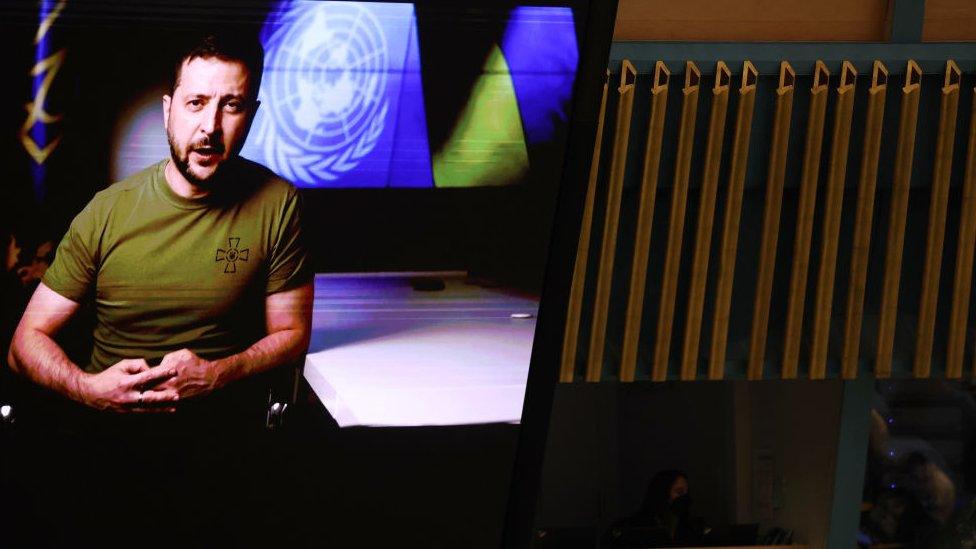
Ukraine's president Zelensky speaking to world leaders on video link this month
What Ukraine says
Ukrainian President Volodymyr Zelensky said the votes were worthless and did not change reality.
He says that all the parts of the country will be reunited again and that their response to parts of the country being annexed "will be very harsh."
After Putin's speech declaring four areas of Ukraine as officially Russian territory Mr Zelensky announced that he is requesting fast-track Nato membership.
Why is this important?
Many people are worried that the war in Ukraine may now get worse, as a result of this referendum.
This is because Russia could say that any attempt by Ukraine to get back the areas is an attack on its territory.
There are also worries that Russia could now tell Ukrainian men in the areas they have taken over that they have to fight for Russia against Ukraine.
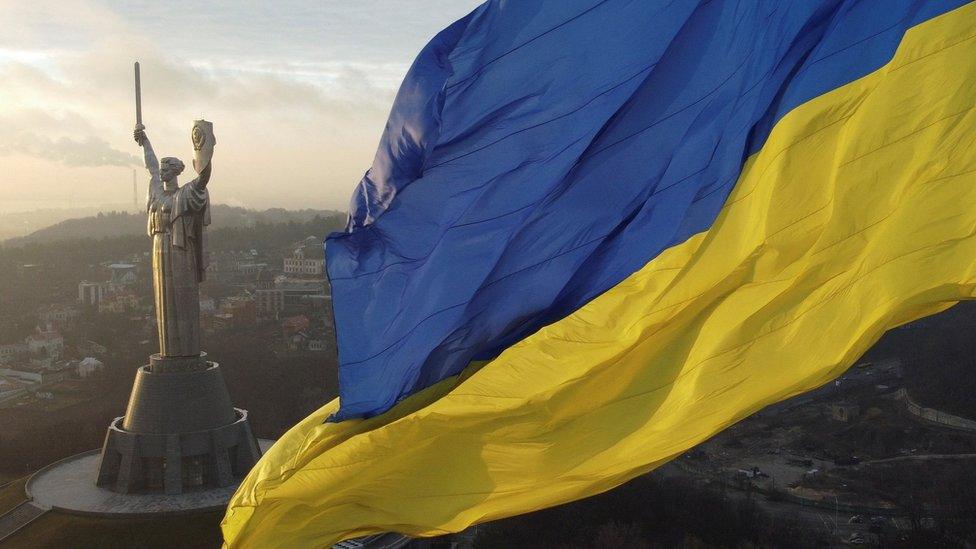
What the rest of the world says
"Never, never, never" is what Joe Biden said when asked if the US will ever recognise Russia's annexation of areas of Ukraine.
The US says it will also impose sanctions on Russia, which means they will impose financial penalties on Russia and and its leaders.
Members of the European Union, which includes France and Germany, are also considering measures including sanctions on anyone involved in the votes.
The UK has responded to the referendums by putting in place more sanctions, against top Russian officials who are involved in enforcing the votes.
In China - which is a traditionally a Russian ally - foreign ministry spokesperson Wang Wenbin said the "sovereignty and territorial integrity of all countries must be respected", when answering a reporter's question about the referendums.
- Published1 March 2022
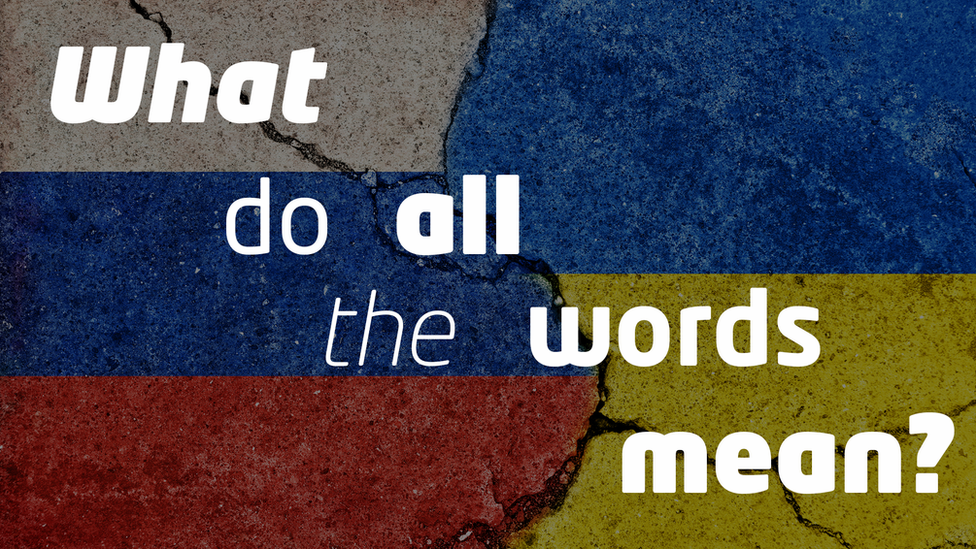
- Published22 February 2023
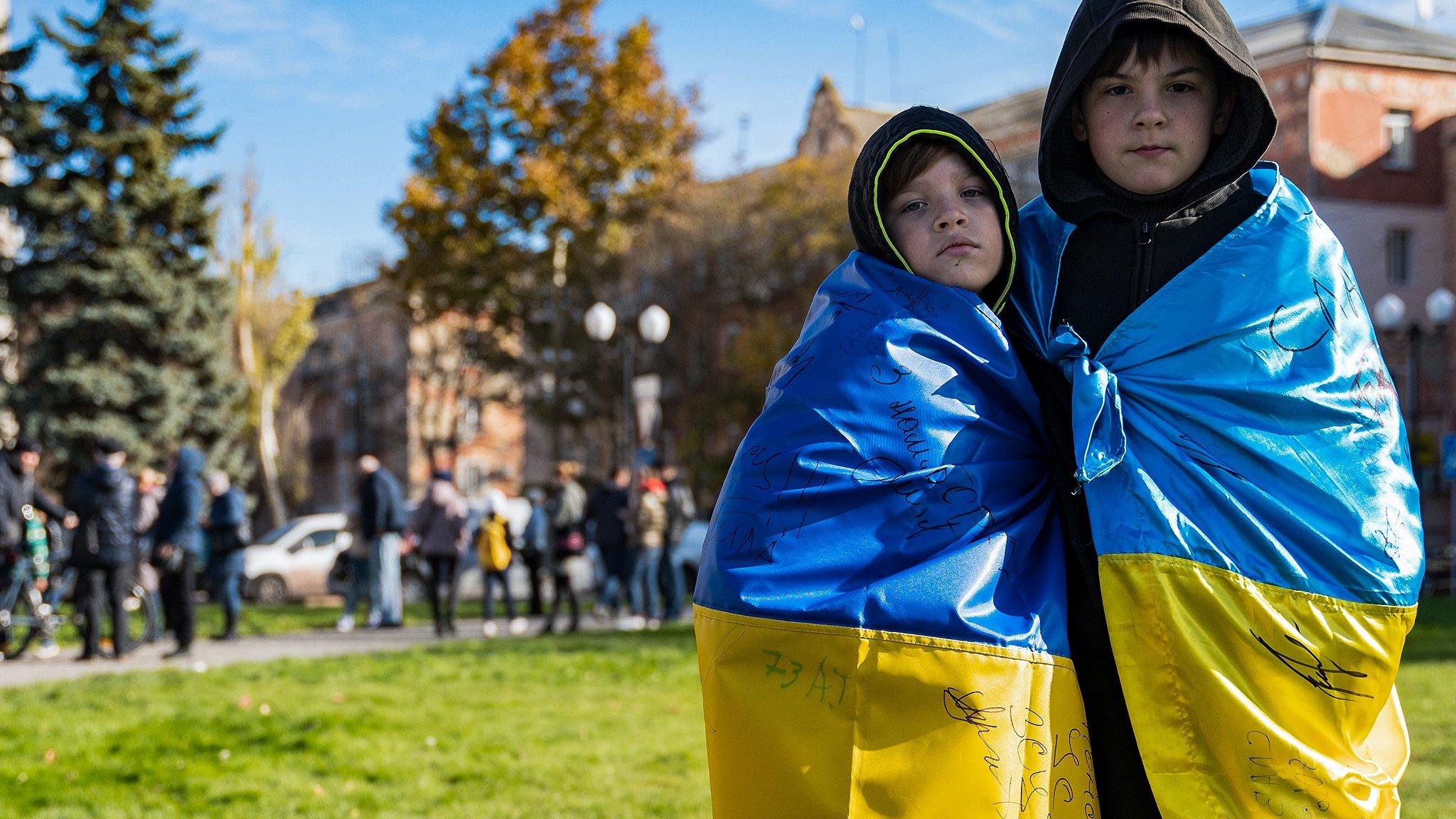
- Published28 September 2022

